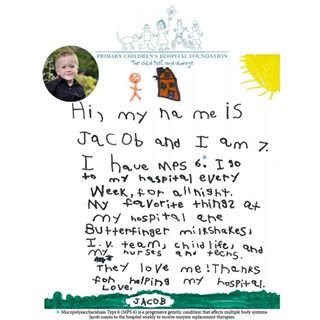Did you know that tooth decay is the most common chronic disease in children? American students miss 51 million hours of school every year because of oral health problems. The good news is there are safe and effective preventive measures that can protect teeth.
Tips for Healthy Kid’s Teeth
1. Schedule your child’s first visit to the dentist early. A child should visit a Pediatric Dentist within six months of eruption of the first tooth or by age one. A pediatric dentist can examine an infant or toddler’s mouth and teeth, and offer preventive information and care which will protect a little smile now and into the future.
2. Dental cavities can begin as soon as they appear in the mouth. A big concern is Early Childhood Caries (also known as baby bottle tooth decay or nursing caries). Infants and toddlers are at risk for severe decay from using a bottle during naps, using a bottle during nighttime, or when they nurse continuously from the breast.
3. The earlier the dental visit, the better the chance of preventing dental problems. Children depend on healthy teeth for chewing, speech, spacing, growth and development, self-esteem and confidence. Start children now on a lifetime of good dental habits. Visit your Pediatric Dentist every six months.
4. Encourage children to start drinking from a cup as they approach their first birthday. Children should never be put to bed with a bottle. At-will nighttime breast-feeding should be avoided after the first primary teeth begin to erupt. Drinking juice from a bottle should be avoided. When juice is offered, it should be in a cup and during meal times.
5. Children should be weaned from the bottle at 12-14 months of age.
6. Thumb sucking is perfectly normal for infants. Most children will stop by age 2 and it should be discouraged after age 4. Prolonged thumb sucking can create crowded, crooked teeth or bite problems. Pediatric Dentists can suggest ways to address a prolonged thumb sucking habit.
7. Never dip a pacifier into honey or anything sweet before giving it to a baby.
8. Limit grazing when it comes to food items. It’s not just the type of food which can influence a child’s risk of developing cavities, but more importantly, it’s the frequency of eating. If your child is snacking or drinking sugary drinks all day, then they will be cavity prone all day.
9. Young children should use an appropriate size toothbrush with a small brushing surface. A fluoride toothpaste is not necessary for children under two years of age. After the age of two, a pea-sized amount of fluoride toothpaste at each brushing is appropriate. Young children should always be supervised while brushing and taught to spit out rather than swallow toothpaste if possible.
10. Children who drink primarily bottled water may not be getting the fluoride they need. Check with your Pediatric Dentist about the need for fluoride supplements which will depend on several important things such as location, filtration, diet, and fluoride containing products currently being utilized in the home.
11. Between six months and 3 years, children may have sore gums when teeth erupt. Many children feel relief with a clean teething ring, cool spoon, or cold wet washcloth. Some parents prefer a chilled ring while others simply rub the baby’s gums with a clean finger.
12. Parents and caregivers need to take care of their own teeth so that cavity causing bacteria are not as easily transmitted to children. Expectant mother should brush, floss and visit a dentist regularly. Don’t clean pacifiers and eating utensils with your own mouth before giving them to children.
Primary Children’s Hospital has a modern pediatric dental clinic that provides primary and specialty care for infants, children and adolescents from birth through 17 years, and children with special needs from birth through 21 years. To learn more about the clinic, visit our website.
About the Author
Share This Article
Search Our Blog
Our Instagram
 primarychildrens
291
Likes
6
Comments
primarychildrens
291
Likes
6
Comments
 primarychildrens
235
Likes
19
Comments
primarychildrens
235
Likes
19
Comments
 primarychildrens
155
Likes
4
Comments
primarychildrens
155
Likes
4
Comments
 primarychildrens
385
Likes
8
Comments
primarychildrens
385
Likes
8
Comments

Recent Posts
- 12 Tips to Keep Kid’s Teeth Healthy April 15, 2016
- Heatstroke and Kids: Even 10 Minutes Alone Could be Deadly April 13, 2016
- Help! My Child May Have Been Poisoned March 23, 2016
- Seven Common Sleep Problems in Teens March 17, 2016
- “We Help at the Moment We are Needed the Most”: Reflections of a Crisis Worker March 10, 2016
Our Most Popular Posts
- Seven Common Sleep Problems in Teens 8 views
- Heatstroke and Kids: Even 10 Minutes Alone Could be Deadly 5 views
- 12 Tips to Keep Kid’s Teeth Healthy 5 views
 How VEPTR Helps Patients with Thoracic Insufficiency Syndrom (T.I.S.) 4 views
How VEPTR Helps Patients with Thoracic Insufficiency Syndrom (T.I.S.) 4 views - “We Help at the Moment We are Needed the Most”: Reflections of a Crisis Worker 4 views
- Bone Fractures: From Break to Cast Removal 4 views
- Celiac Disease and Eating a Gluten-Free Diet 4 views
- What You Did That Helped Me the Most: A Letter From a Patient to His Mom 3 views
 Primary Children’s Nurse Receives Intermountain Healthcare’s First-Ever Healing for Life Award 3 views
Primary Children’s Nurse Receives Intermountain Healthcare’s First-Ever Healing for Life Award 3 views  Life with Type 1 Diabetes: Patients Celebrate their 10-Year Journey 3 views
Life with Type 1 Diabetes: Patients Celebrate their 10-Year Journey 3 views
Archives
- April 2016 (2)
- March 2016 (5)
- February 2016 (6)
- January 2016 (7)
- December 2015 (5)
- November 2015 (8)
- October 2015 (8)
- September 2015 (2)
- August 2015 (1)
- July 2015 (3)
- June 2015 (2)
- May 2015 (2)
- March 2015 (3)
- February 2015 (2)
- January 2015 (2)
- November 2014 (1)
- October 2014 (1)
- September 2014 (3)
- August 2014 (2)
- July 2014 (4)
- June 2014 (2)
- May 2014 (4)
- April 2014 (6)
- March 2014 (4)
- February 2014 (1)
- September 2013 (1)
- February 2013 (1)
- June 2012 (1)














Add comment